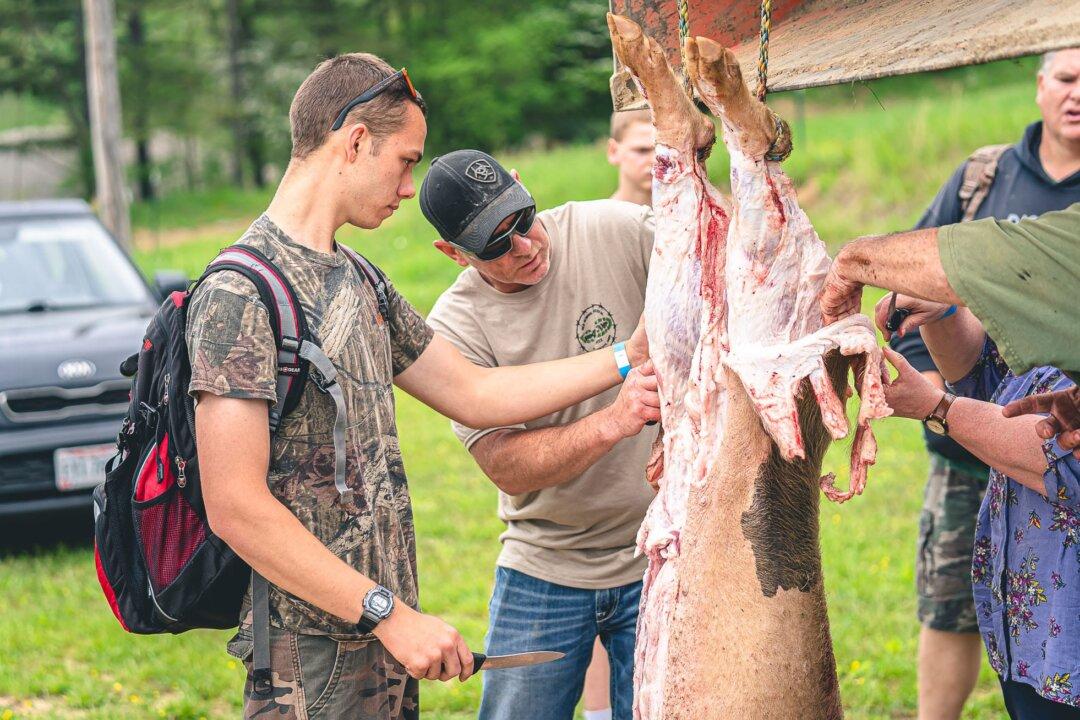VINTON COUNTY, Ohio—People from all walks of life across 25 states and Canada flocked to the Old School Survival Boot Camp for a three-day event over May 12–14 in the Appalachian foothills of southern Ohio, where they gathered to learn skills that teach self-reliance.
More than 140 classes taught by instructors from around the country included butchering, canning, herbalism, emergency medicine techniques, food preservation, blacksmithing, beekeeping, and gardening.





